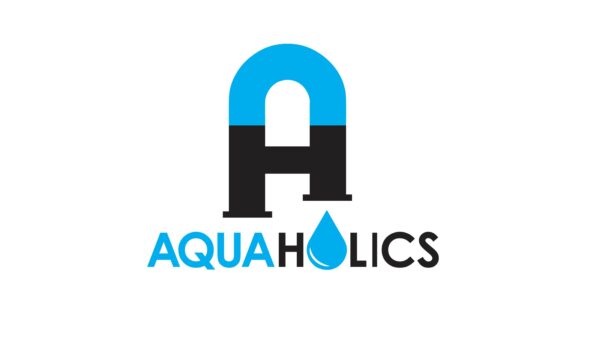Linda Finlay from BDO Tauranga answers some of our FAQs regarding the Government’s announcement to provide additional tax support to small and medium businesses.
We will also have further advice and information on this next week, following the Government passing the legislation on April 30,2020.
What will businesses need to prepare for the tax loss carry-back scheme?
The announcement made on 15 April 2020, it will particularly benefit businesses that made a profit in the 2020 tax year, but that will forecast a loss in the 2021.
Based on the information received it appears that tax legislation will be introduced to allow businesses to carry losses backward to prior years instead of forward as per usual practice. This could mean that business could reduce their provisional tax payments due on 7 May 2020 if they forecast a loss for the 2021 tax year, due to the pandemic.
If the consolidated profit and loss of the two tax years, results in already over payment of tax, the IRD would refund earlier provisional tax payments to taxpayers to assist businesses with cash flow during this difficult time.
Business owners would need to ensure that they have proper accounting records, and preferably have their annual accounts and tax returns filed by a registered accountant and tax agent, to ensure that they are able to fully utilise the carry-back scheme.
Business owners will not be able to carry back any losses from 2020 to 2019. The amendment allows losses to be carried backwards from 2021 to 2020.
Is this scheme open to sole traders or contractors? Are there separate considerations for them around this?
Although the legislation has not been released yet, we believe that the loss carry-back will be applicable to sole traders and contractors as well. It is very important to ensure that proper records are kept throughout the year, to ensure that any IRD queries and audits completed will not cause adverse effects on the businesses tax.
What impact will the changes to the tax loss continuity rules have for businesses?
The tax loss continuity changes would mean that business would be able to have a change of shareholding of more than 51% without losing prior year losses.
Although the legislation has not yet been released, it appears that the IRD will replace the tax loss continuity test of 51% with a ‘same or similar’ business test, meaning that if the business continues in the same or similar way before the ownership changed, the business would be able to carry forward or utilise losses.
In short this means a business will be able to issue shares to investors, without incurring an adverse income tax effect. This may assist business owners to raise much needed equity and funding without potentially losing their tax losses or imputation credits.
Any key dates or deadlines coming up businesses need to be aware of for tax?
IRD has not published the new timeframes and procedural requirements. However,to facilitate a carry loss backward, it would make sense that the filing for tax returns will be extended until after the tax year end of the next year.
The current Tax Administration Act 1994 allow Inland Revenue to provide an extension to due dates and timeframes of up to 18 months at the discretion of the taxpayer. Legislation may be changed to increase the time-limit available to IRD.

How does the Business Finance Guarantee Scheme work and what do businesses need to do to gain access to this? What do they need to prepare?
The Scheme will cover up to $6.25 billion in loans to New Zealand businesses. The central feature of the Scheme is that the Government is guaranteeing 80% of the risk of Scheme loans, while the banks are covering the remaining 20%. This assumption of most of the risk by the Government (taxpayers) will encourage banks to make business loans that may otherwise have appeared too risky, thereby increasing the survival chances of such businesses.
Businesses that will be eligible for the loan must be New Zealand based and impacted by COVID-19. The annual turnover of the business must be between $250,000 and $80m. The Government has placed some restrictions on what the loans could be used for, for example only 5% of the loan should be spent on capital and loans cannot be used to on-lend to another business.
It is important to note that although the Government will be co-guarantor for the loan, the banks will still go through the normal credit application process.
The Government has excluded certain businesses from the loan:
- Property development and property investment
- Local government (i.e, a local authority, a council-controlled organisation or a council organisation for the purposes of the Local Government Act 2002)
- The supply of recreational cannabis
- The processing of whale meat
- The manufacture of cluster munitions, nuclear explosive devices, anti-personnel mines, tobacco, and civilian automatic and semi-automatic firearms, magazines or parts
- Agriculture (this does not include horticulture, viticulture, aquaculture, or services to agriculture)
- Any other activity notified by the Crown to banks in writing, with effect from the date of that notification.
It is very important to note that banks will still ask business owners to provide security and guarantees of up to 20% of the loan. If the business defaults on the loan, the bank will first call up the security and guarantees provided by the business owner, before attempting to recover the remaining from the government.
Anything else you’d like to add related to tax that could be useful for our business community?
We expect more tax changes and adjustments to be introduced in the coming year, and if business do not make use of registered tax agents we recommend that they subscribe to mailers of accounting firms to receive updates on the changes in legislation in a more easily digestible format.
















































